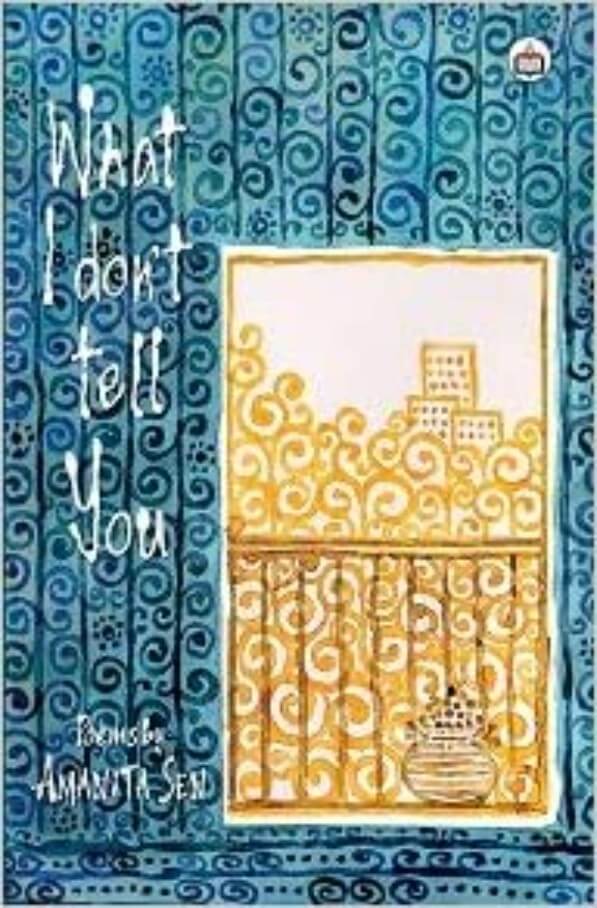Reading Time: 3 minutes
Dr. Sutanuka reviews Amanita Sen’s book of poetry, What I Don’t Tell You. An exclusive for Different Truths.

Amanita Sen in What I Don’t Tell You explores the fluid landscapes of the mind pulsating with life. The opening poem, The Healer, heals the blank spaces of the mind with amazing grace, lacerating the surface with a flurry of the seemingly disjointed jigsaw puzzle of strokes that fell into the shape of life. “Orbits direct, guide, like/ the moral dictum of Hammurabi’s Code/ assuring the safe haven/ of a flawless life” (Orbits).
Sen attempts to explore her inner experience and involvement with the mysteries of mind and form, which is expressed in the lonely nights, space, and light. “The heaving rises, calmer plains/ enticingly wondrous, enriching/ the chapters of the gripping tale”(Your Hands). In It’s Okay to Fall Sen configures the upheaval in the mind through the turbulence of a ‘fall” a fall is ok “But spare her the laughter/ at the memory of falling.”
Tumultuous like a river in spate, the poet’s imagination is about to burst its banks when she and Autumn become one…
Tumultuous like a river in spate, the poet’s imagination is about to burst its banks when she and Autumn become one —“I am autumn, as autumn is me,/ as we could have been like”. My Beauty Pack has fluidity and malleability as the poet does not try to rein in her imagination “If beauty is only skin deep, / I leave it for time to say”. The Old Refrigerator throbs with memories, adding nothing no details that she did not see.

Spelling Love facilitates a dialogue between love and the poet, instead of rhetoric, Sen balances gut-wrenching realism with soul-searching poetry. “The wonder captured/ in its unadorned beaming,/ the vulnerability-joyous/ for its unabashed being” (Vulnerability).
The Nude Model and the Artist disturb the complacency that seems to have set in as the readers negotiate with the symbolic relationship of the nude model and the artist. “What was there in those Godly hours/ the model wondered, but she never knew/ if, after all, it was love disrobing her!”
Sen makes the most of her expression reflecting the subtlety of the relationship.
Sen makes the most of her expression reflecting the subtlety of the relationship. She also insists to let the little things that would ordinarily bore the readers suddenly make you feel high “when living is simply not dying,/ when beyond life is closer than life itself,”(The Borderline) making the poem a typical example of tangential human imagination.
The titular poem, What I Don’t Tell You, speaks volumes of Sen’s passionate love for the poetic art form. “I don’t tell you/ that in fierce hours,/ lonely, nowhere to go,/ I will only come to you,/hold on to you,/resting/ my head on your/ kind, expansive shoulders”. The poet also speaks of the most tenacious memory of her father in a poem called Packing: “A handwritten note/ from my dad to my son,/ his last one,/ the fading ink-colour/ retaining the smile/ of an Agra morning;/ I picked it up from the/ closet where it lay/ these many years.”
Mindscapes form a significant part of Sen’s oeuvre…
Mindscapes form a significant part of Sen’s oeuvre and these poems in this slim collection are their extension. If you want to garner peace and start seeing the present chaotic life in a different light Amanita Sen’s What I Don’t Tell You is worth picking up.
Cover photo sourced by the reviewer















